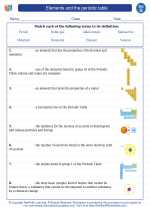Recombinant DNA
Recombinant DNA technology is a set of molecular techniques used to manipulate and modify DNA, allowing scientists to create new combinations of genetic material. This technology has revolutionized many fields, including medicine, agriculture, and biotechnology.
Basic Concepts
1. Definition: Recombinant DNA refers to the artificial combination of DNA from different sources to create new genetic combinations.
2. Restriction Enzymes: These are enzymes that cut DNA at specific sequences, allowing scientists to isolate and manipulate specific DNA fragments.
3. Vector: A vector is a DNA molecule used to carry the foreign DNA into a host organism, where it can be replicated and expressed.
4. Cloning: The process of making multiple identical copies of a gene or DNA fragment.
5. Gene Therapy: Recombinant DNA technology is used in gene therapy to treat genetic disorders by introducing healthy genes into the patient's cells.
Applications
1. Medical Research: Recombinant DNA technology has enabled the production of important proteins such as insulin, growth hormone, and clotting factors for medical use.
2. Agriculture: Genetically modified organisms (GMOs) are created using recombinant DNA technology to improve crop yield, resistance to pests, and nutritional content.
3. Forensics: DNA fingerprinting, a technique used in forensic analysis, relies on recombinant DNA technology to identify individuals based on their unique DNA profiles.
Study Guide
Here are some key points to remember when studying recombinant DNA:
- Understand the basic principles of recombinant DNA technology, including the use of restriction enzymes and vectors.
- Be familiar with the applications of recombinant DNA in medicine, agriculture, and forensics.
- Learn about the ethical and societal implications of using recombinant DNA technology.
- Review the steps involved in cloning a gene or creating a genetically modified organism.
- Understand the potential benefits and risks associated with the use of recombinant DNA technology.
By mastering these concepts, you will have a solid understanding of recombinant DNA technology and its impact on various fields.
.◂Science Worksheets and Study Guides Seventh Grade. Elements and the periodic table
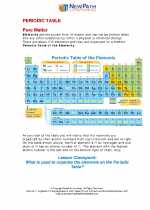
 Activity Lesson
Activity Lesson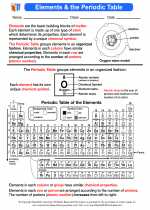
 Worksheet/Answer key
Worksheet/Answer key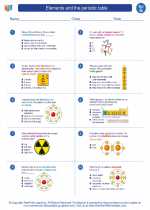
 Worksheet/Answer key
Worksheet/Answer key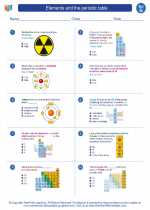
 Worksheet/Answer key
Worksheet/Answer key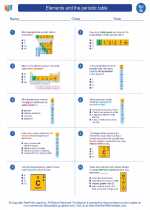
 Worksheet/Answer key
Worksheet/Answer key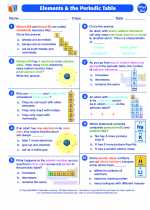
 Vocabulary/Answer key
Vocabulary/Answer key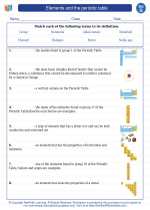
 Vocabulary/Answer key
Vocabulary/Answer key